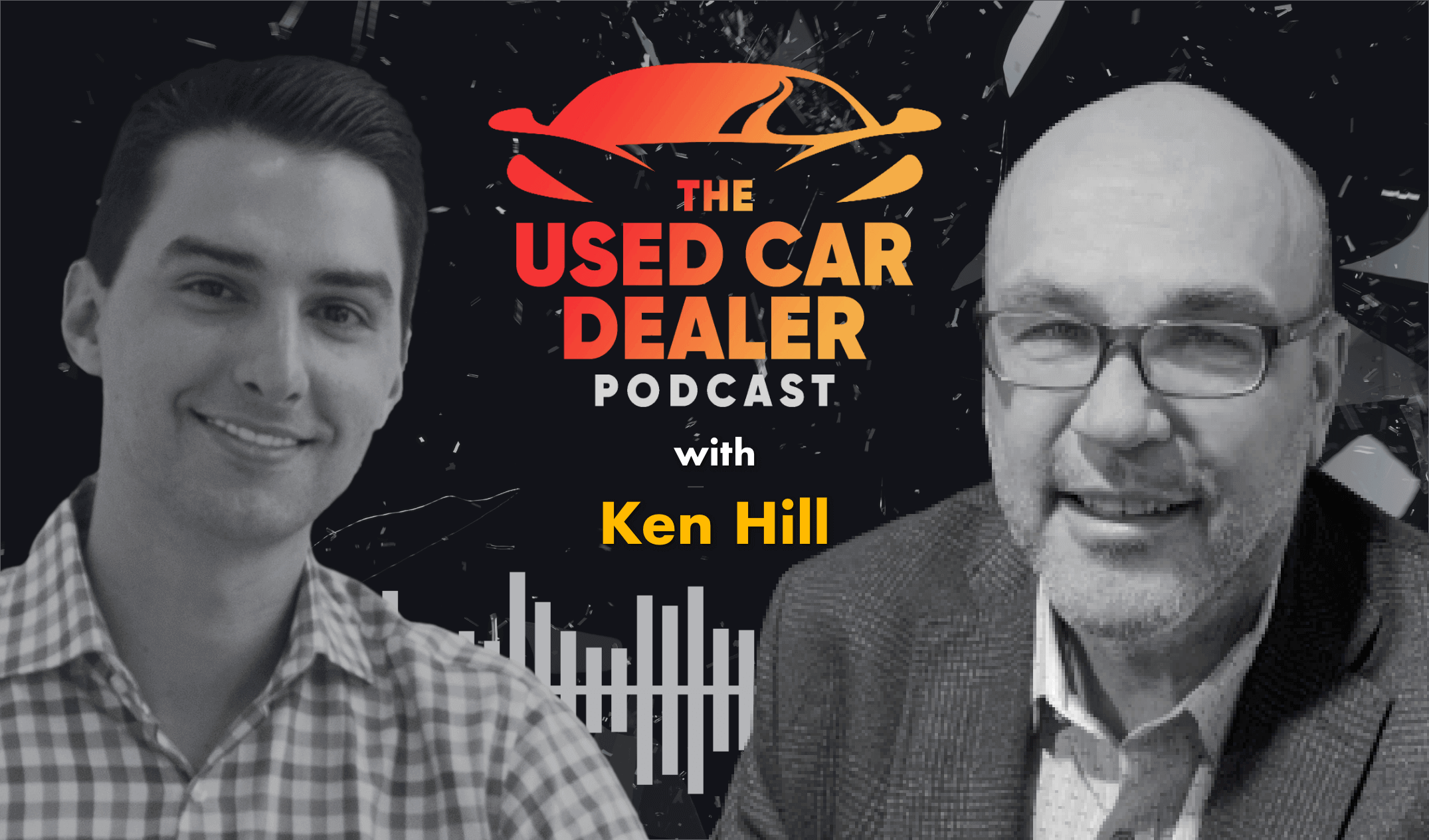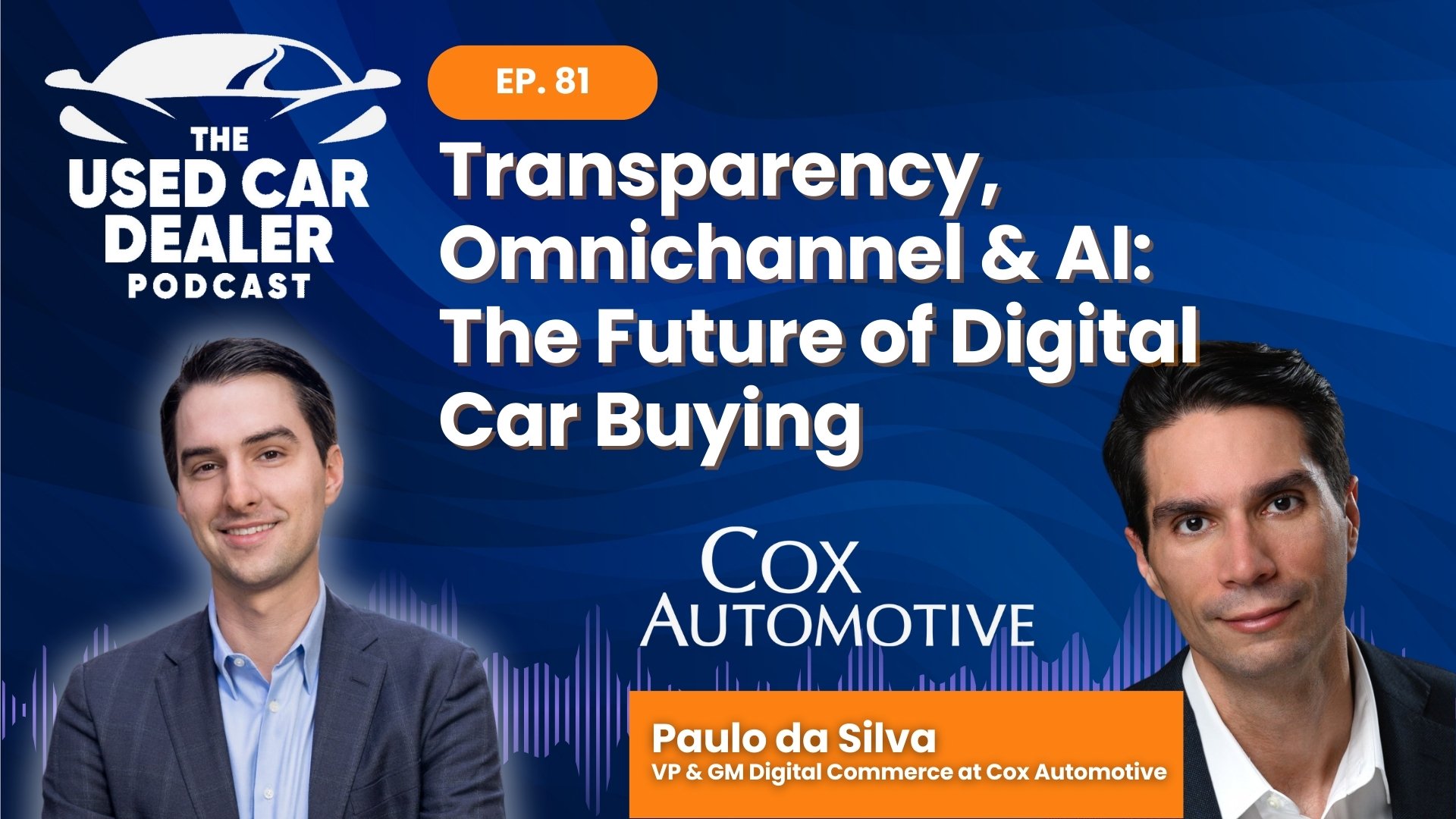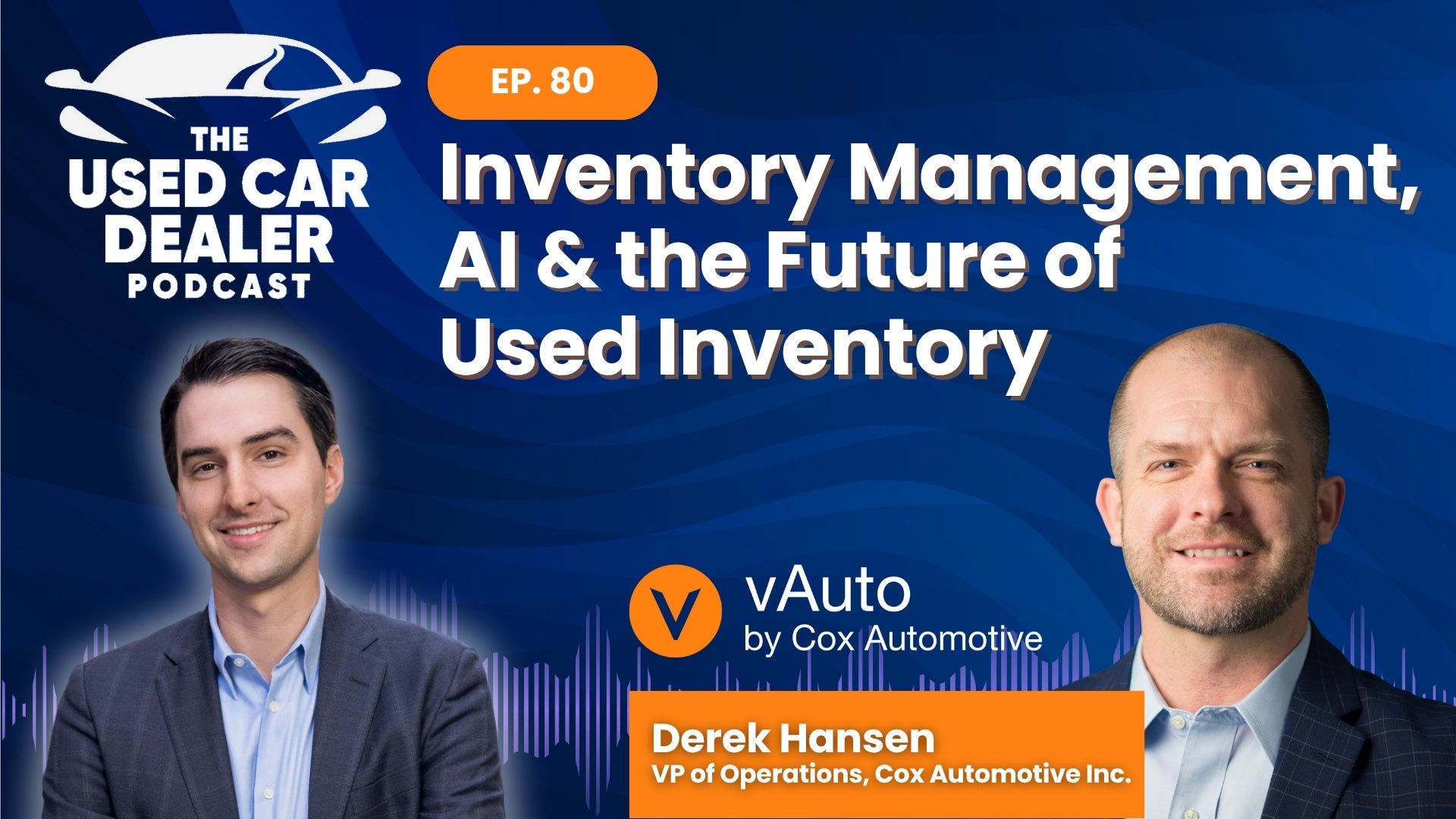In this blog post, we have transcribed the UCDP interview with Ken Hill in written format. You can listen to the original podcast here.
Zach: Well Hello, Zach here and we have a great guest on the podcast today, Ken Hill who is the Managing Director at 700Credit. Thank you for joining us today, Ken.
Ken: Zach, thanks for having me. I appreciate the opportunity to talk to your audience.
Zach: Let’s get things started. For those of us listening, what does your role as Managing Director encompass and how did you get on the credit side of the automotive industry?
Ken: I’ve been in credit for almost 30 years. I started off when you use to pull your credit to purchase a cellphone and I got into automotive, I would say about 20 years ago and I really liked getting into a specialized industry because I felt it was easier to develop products, especially around compliant solutions when you’re zoomed in on one industry versus all industries which previously I was incorporated in.
At 700Credit I focus on management of the business development team and the sales team and then the support teams but I have a great team with a lot of automotive experience and a lot of industry experience, I think it’s probably well-over a hundred years now. They’ll probably hit me for telling you that but well there’s well over a hundred years of experience in my management team in automotive. I’m pretty excited.
Zach: How has credit and compliance changed in the period of COVID19 from your lens?
Ken: It’s changed a lot., I think not so much just my lens but I think it accelerated dealers' adaptation of digital retailing probably by about 2 years. Who knows how long it would have taken dealers to adapt digital retailing to where they are today. And I think digital retailing has just been accelerated and dealers understand now that they need to have some form of digital retailing. It's also from a credit lens, I think it’s really advanced the products and made the products more mature to be able to do that complete process online.
Hand-in-hand with that is the prequalification which is a form of credit right? It’s consumer-authorized but it’s a soft pull, sort of fits digital retailing and online-shopping environment perfectly. Our volumes in that product have grown tremendously throughout this year and it’s more than off-set, our decline. We had about a 20% decline from start to end of the year. As our transactional volume has gone a little down, traditional credit qualifications have gone up 60-70% because it fits the consumer buying experience who is out there shopping for a car.
And also pre-screen, we’ve had a lot of integrations lately in the service lane because it complements selling cars out of the service lane; it provides insights to those consumers who didn’t buy the car at that dealership, it tells them how much they owe on a vehicle as well. Equity can be calculated, how much they’ll have to put down towards that current equity, also a payment, current payment versus proposed payment. It’s stuff that the DMS doesn’t have on vehicles that weren’t part of the store and our stats show probably about 40% of vehicles in the service lane were not purchased in that store. In a digital environment as well, dealers trying to sell vehicles out of service lanes has really taken off again because of the environment.
Zach: How has credit compliance adapted for automotive digital retail and what role does pre-qualified play in that?
Ken: The pre-qual, as I mentioned earlier, is a soft-pull. So it doesn’t impact the consumer’s credit and it’s not a hard-pull but with the pre qual, you get a full credit report and a FICO score.
One of the key factors in digital retailing that I see--I probably look at 5, 10 products a week, or talk with the vendors of those products because our prequal is integrated into most products that are out there. But one of the keys components of dealer satisfaction, consumer satisfaction with the digital retail product is that the payment that’s quoted to that consumer. And the only real way to do that is to do a pre-qual and because you’re getting a consumer’s accurate credit picture and being able to calculate an accurate payment off of their credit score versus self-recorded scores.
A consumer might know their score or they might’ve just went to like a Credit Karma and got their vantage score but the dealers know we’re using FICOs and we have those. Pre-qualifications complements that online shopping environment as well because it doesn’t impact the consumer score.
If I’m shopping, I can get an accurate payment at this dealership and I go to this dealership and I’m interested in this vehicle, I can get pre-qual over here and get an accurate payment quote over here without impacting my credit. So, it really benefits the consumer as well as the dealer from a compliant standpoint because it is, you have to ask a consumer, you know “is it okay to access your credit, this doesn’t impact your credit but we need your permission to access your credit” it really covers you from a compliance perspective. There are some points of view that you need to do adverse with prequalification or if you’re not going right to a full credit app, you also may need to do a risk page pricing notices of pre-qual but it’s interpretive and interpretations tend to be all over the map right now.
Zach: To give the audience a little context, you’re basically on the back end of a lot of auto software products, and you work with a lot of different dealers, how many different vendors and dealers does 700Credit work with?
Ken: We’re probably behind most digital retailing products that are out there in the market, like Roadster but then also we’re software partners and that has always been our strength, as our channel partners, our partners such as yourself, over the years we’ve probably close to 200 integrations partners and also with 95% of DMSs out there, 95% of CRMs. Our partnerships are the real strength of our business and our business’s growth comes from our partners.
Zach: So, talk about some of the compliance mistakes a used car dealer makes that could get them into some legal trouble.
Ken: Yeah, well if I talk about used car dealers’ compliance, the big franchise groups, and the big groups, they are on the auditor’s radar, they’re on the state-federal auditors radar, they start with us, they start with the bureaus, and then they start to come down into the big groups. So, I haven’t seen a lot of case law on used car dealerships. However, what I would say is for used car dealers to make sure you have programs in place so that if you are audited or if you’re sued, it’s an ugly word, if you’re sued, you have a defense.
And one thing I am seeing and I think it will impact used car dealers, I call them “mystery shoppers” but they’re not – I gotta come up with a better word than mystery shoppers, everybody knows what a mystery shopper is, right?
Restaurant chains will send people to eat at their restaurants and then rate the restaurant and the service and they’re you know. So this is sort of a nasty turn of events in the industry right now is that there’s mystery shoppers for adverse actions. So law firms are out there and please heed this warning, make sure you have an adverse action program in place.
If you don’t know where adverse occurs in your used car dealership, when you should deliver it, you can call us if you’re a customer or not a customer. We'll help you. But they’re sending the 500 credits with the bankruptcies, with the late payments, the reposts they’re sending them in to buy cars in the dealership in the hopes that you’re gonna pull that consumer’s credit and go, “oh my gosh no I don’t I can’t, I don’t have any finance programs for you” and just tell them no it’s fine or you make them a counter offer and they don’t take the counteroffer.
And then they walk out of the dealership, they’ll wait I think it’s 30 days, you have 30 days to give them an adverse action notice. If you don’t send that person an adverse action notice, they’re gonna sue you. And then they’re gonna try to convert that suit to a class action suit which means they’re gonna subpoena, or they’re gonna ask you for everybody who’s sold or didn’t sell a car to and pull the credit report on the last 2 years and they’re gonna try and take it to class action lawsuit. I’ve seen it, I’ve testified in them so you have to be careful. It’s not a pretty side of the, you know I guess, you can make a case that they’re helping to ensure that dealers have good processes in place but that’s not likely to do anything.
Zach: Interesting and if you were to give a dealership or used car dealer a checklist of compliance tools and credit tools from prescreening to income verifications, what would you suggest the average used car dealership should have in place?
Ken: From a toolset would be prequalify, at a used car dealership a lot of your volume comes from automotive marketplaces, Autotrader right? You put your inventory up on those sites. Have a way to prequalify consumers. Get an insight at the top of the sales funnel, what that consumer's credit classification is before you pull their hard credit pull. And that will give you what type of consumer you’re dealing with, what type of interest rate they’re looking at, what type of payment they’re classified, it’s gonna shorten your sales cycle, it’s gonna help prioritize sales, shorter sales cycle and it does help you sell more cars.
We get feedback all the time, we ask customers to test them, all you get is, “I’m selling more cars with the prequalification product on my website” So you can have it on your website, on your inventory and then you can forward links to consumers to fill up and be prequalified that are coming into your CRM and it really helps out.
Now from a compliance standpoint, I would make sure you understand, again we have free videos on compliance, you want to see them, watch them and get compliance programs in place. It adds a little bit of overhead in terms of, somebody’s gotta do this and it’s a pain in the rear every month but you wanna have a good program in place. Those would be my two recommendations.
Zach: So give me a peek ahead into 2021 and what you guys have coming down the pipeline.
Ken: So believe it or not I would say that most digital retail products are still very, immature. Not all digital retail products help engage with the consumer and work with that consumer as they complete the digital retail process. Some just take that initial engagement and pass it through the CRM you know that’s sort of tough to work at.
I think the tools are maturing whereas that they continue to allow you to engage with the consumer and all the way to contracting and its starting to get a lot of traction which is aftermarket products and incorporating those into the digital retailing so the dealer doesn’t lose the upside of those aftermarket products and digital deal.
And for us, we’re gonna be coming out with a digital retailing product that sort of targeted at the independent market. Something that can serve the midsize, small dealership that doesn’t have the price tag associated with some of the larger organizations. And also our products, I can’t tell you how much our products have changed even from the beginning of last year let alone from two years ago, to help support the digital retailing environment. We’re pretty agile whatever we hear is needed by the industry, we react and adapt, or is that adapt and react?
Zach: And another question so, a lot of ‘buy here pay here’ dealers, we hear feedback from them like, ”Digital retail’s great if you’re running your average retail operation”. What sort of ways or opportunities do ‘buy here, pay here’ dealers have to leverage credit tools in digital retail; knowing that you have a slightly different model?
Ken: Yeah, good question. You know, that’s a question our team faces every day. “I’m a buy here, pay here, I don’t need to pull credit, right?” but there’s so much information on the credit file that can help a ‘buy here, pay here’ and I know some ‘buy here, pay here’s “well I got a turn off the switch in the car, if they don’t pay I’ll turn it off”.
But you still wanna try to understand the current situation: are they in bankruptcy? Do they owe anybody? Are they in collections? Am I gonna be a priority?
Why start off a relationship leaning on, “I’m gonna turn their vehicle off” if there is some good data in a credit file that can help including all their current who they owe money to, and contact information for everybody they owe money to and you get an idea of how much they’re paying out each month. So there’s a lot of good information in a credit file. We’re also looking at some products’ alternative data sources, it’s another item that I think has been real slow-moving. When I was young I got into automotive 20 years ago, alternative data sources, and Ken Shilson and his data company. He was also into alternative data but it really hasn’t gained traction but I think now with the bureaus, each bureau has purchased alternative data sources, and the intent is not to merge those with credit files.
So we’re looking at launching some products this year to give insight into that alternative data meaning ‘buy here, pay here’, short-term loans that are funded over the internet. There’s all sorts of different data sources that report for these alternative data sources that don’t report to the bureaus today, so that’s gonna be interesting.
I think that’s gonna start to take some legs in the industry, it’s been very slow-adapting but I think now that the bureaus have committed to it you know there are experts in building data, in building files, I think it’s gonna have some legs
Zach: Ken, I’ve really enjoyed your insight and before we close everything out I wanted to see if there is anything we didn’t discuss that you’d like to discuss.
Ken: I don’t think so, I think you hit all the key points and, I think we’re really positioned to take off in automotive. I think there’s a lot of consumers out there, me included, that’s waiting to trade their car until after COVID. And there’s a shortage of inventory right now but I think that’s gonna turn around as well. So I’m really excited for 2021 and I appreciate the opportunity to talk to you today,
Zach: Well thanks again, Ken. We really enjoyed you on today’s episode of the Used Car Dealers podcast.
Ken: Thanks Zach, I appreciate it.



.png)




.jpg)
.jpg)
.jpg)
.jpg)

.png)
.png)
